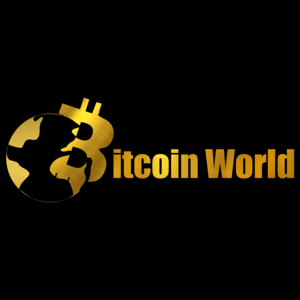SEC Considers Revolutionary DLT Exemption for Tokenized Securities
5 min read
Big news is brewing in the world of finance and blockchain technology! The SEC (U.S. Securities and Exchange Commission) is reportedly looking into a potential exemption order that could significantly impact how securities are issued, traded, and settled using Distributed Ledger Technology ( DLT ). This move, highlighted by SEC Commissioner Hester Peirce and reported by Wu Blockchain, signals a growing recognition within regulatory bodies of the potential benefits and unique characteristics of Digital Assets and Tokenized Securities . What Exactly is the SEC Considering? According to the report citing Commissioner Hester Peirce, the SEC is exploring the possibility of creating an exemption. This order would specifically allow companies to leverage DLT for key functions related to securities, including: Issuance: Creating and distributing securities directly onto a distributed ledger. Trading: Facilitating transactions of these securities on innovative trading systems built on DLT. Settlement: Finalizing the transfer of ownership and value on the ledger, potentially speeding up the traditional multi-day process. Furthermore, the exemption would aim to permit the operation of novel trading systems designed specifically for eligible Tokenized Securities . This suggests the SEC is grappling with how existing securities laws apply to assets represented digitally on a blockchain and is seeking pathways to accommodate this technological shift. Why is the SEC Looking at a DLT Exemption Now? The financial landscape is evolving rapidly with the advent of blockchain and Digital Assets . Traditional systems for issuing and trading securities, while robust, can be slow, costly, and complex. DLT offers the promise of greater efficiency, transparency, and accessibility. Regulatory bodies like the SEC are under pressure to understand and respond to these innovations. A tailored exemption could provide a legal framework for companies to experiment and build in this space while still maintaining necessary investor protections. Commissioner Peirce, often referred to as ‘Crypto Mom’ for her relatively pro-innovation stance compared to some of her peers, has long advocated for regulatory clarity and safe harbors for blockchain projects. Her comments suggest that internal discussions within the SEC are progressing towards finding practical ways to integrate DLT into the existing securities market structure rather than trying to fit square pegs into round holes. What are Tokenized Securities and Why Use DLT? Tokenized Securities are essentially traditional financial assets (like stocks, bonds, real estate, or private equity) whose ownership and transfer rights are represented by digital tokens on a blockchain or other DLT. Think of it like creating a digital certificate for an asset that lives on a shared, secure ledger. Using DLT for securities offers several potential advantages: Increased Efficiency: Automating processes like clearing and settlement through smart contracts can drastically reduce time and manual effort. Reduced Costs: Lower reliance on intermediaries can cut fees associated with issuance, trading, and administration. Greater Transparency: Transactions recorded on a public or permissioned ledger can be more easily audited and verified (depending on the specific DLT design). Improved Liquidity: Tokenization can make illiquid assets (like real estate or private company shares) more easily divisible and tradable. Faster Settlement: Atomic swaps and on-chain settlement can reduce settlement times from days to minutes or even seconds. The SEC’s consideration of an exemption acknowledges these potential benefits but also implies that the unique nature of DLT and Tokenized Securities doesn’t fit neatly into current regulations designed for paper certificates and centralized ledgers. How Could This Impact Crypto Regulation and the Broader Market? This potential exemption is a significant development for Crypto Regulation . While the focus here is on traditional securities being tokenized on DLT, a clear regulatory path for DLT-based securities could have ripple effects across the broader digital asset ecosystem. It could: Provide Clarity: Offer a clearer regulatory framework for projects looking to issue tokenized versions of real-world assets. Encourage Institutional Adoption: Make it easier and safer for traditional financial institutions to explore and use DLT for securities. Spur Innovation: Incentivize the development of new trading systems and platforms built on DLT. Influence Global Standards: As a major financial regulator, the SEC’s approach could influence how other jurisdictions handle Tokenized Securities . However, it’s crucial to note that this is an exemption for securities specifically. It doesn’t necessarily change the regulatory status of other Digital Assets , such as cryptocurrencies like Bitcoin or Ethereum, which the SEC might view differently. What Challenges Remain for DLT and Tokenized Securities? While the prospect of an exemption is positive, significant challenges persist. The SEC must carefully consider: Investor Protection: How to ensure adequate safeguards for investors trading on new DLT-based systems. Market Integrity: Preventing manipulation and ensuring fair and orderly markets. Cybersecurity: Addressing the unique security risks associated with DLT platforms. Interoperability: How different DLT systems will interact with each other and with traditional financial infrastructure. Legal and Custodial Issues: Clarifying ownership rights and secure custody of Tokenized Securities . An exemption order would need to address these complex issues to be effective and maintain confidence in the market. Actionable Insights: What Should You Watch For? For anyone interested in the intersection of finance, technology, and regulation, this development is key. Keep an eye on: Details of the Exemption: The specific scope, conditions, and limitations of any proposed order will be critical. Which types of Tokenized Securities are eligible? What requirements will DLT trading systems need to meet? SEC’s Timeline: When might a formal proposal or order be released? Regulatory processes can be lengthy. Industry Response: How will financial institutions, blockchain companies, and market participants react to and potentially utilize such an exemption? Other Jurisdictions: Will this move influence regulatory approaches in Europe, Asia, and elsewhere? This consideration by the SEC is a clear signal that regulators are actively working to understand and potentially integrate DLT into the mainstream financial system, moving beyond just focusing on Crypto Regulation in a punitive sense towards enabling innovation. Conclusion: A Potential Turning Point for Digital Assets and Finance The SEC’s reported consideration of a DLT exemption for Tokenized Securities is more than just regulatory jargon; it’s a potential turning point. It acknowledges the transformative power of distributed ledger technology and its application to traditional finance. While significant hurdles related to Crypto Regulation , investor protection, and market structure remain, this step indicates a willingness by at least parts of the SEC to create a viable path for innovation in Digital Assets . Should this exemption come to fruition, it could unlock new levels of efficiency and accessibility in capital markets, paving the way for a future where traditional securities and blockchain technology are seamlessly integrated. To learn more about the latest crypto regulation trends, explore our article on key developments shaping digital assets institutional adoption.

Source: Bitcoin World



